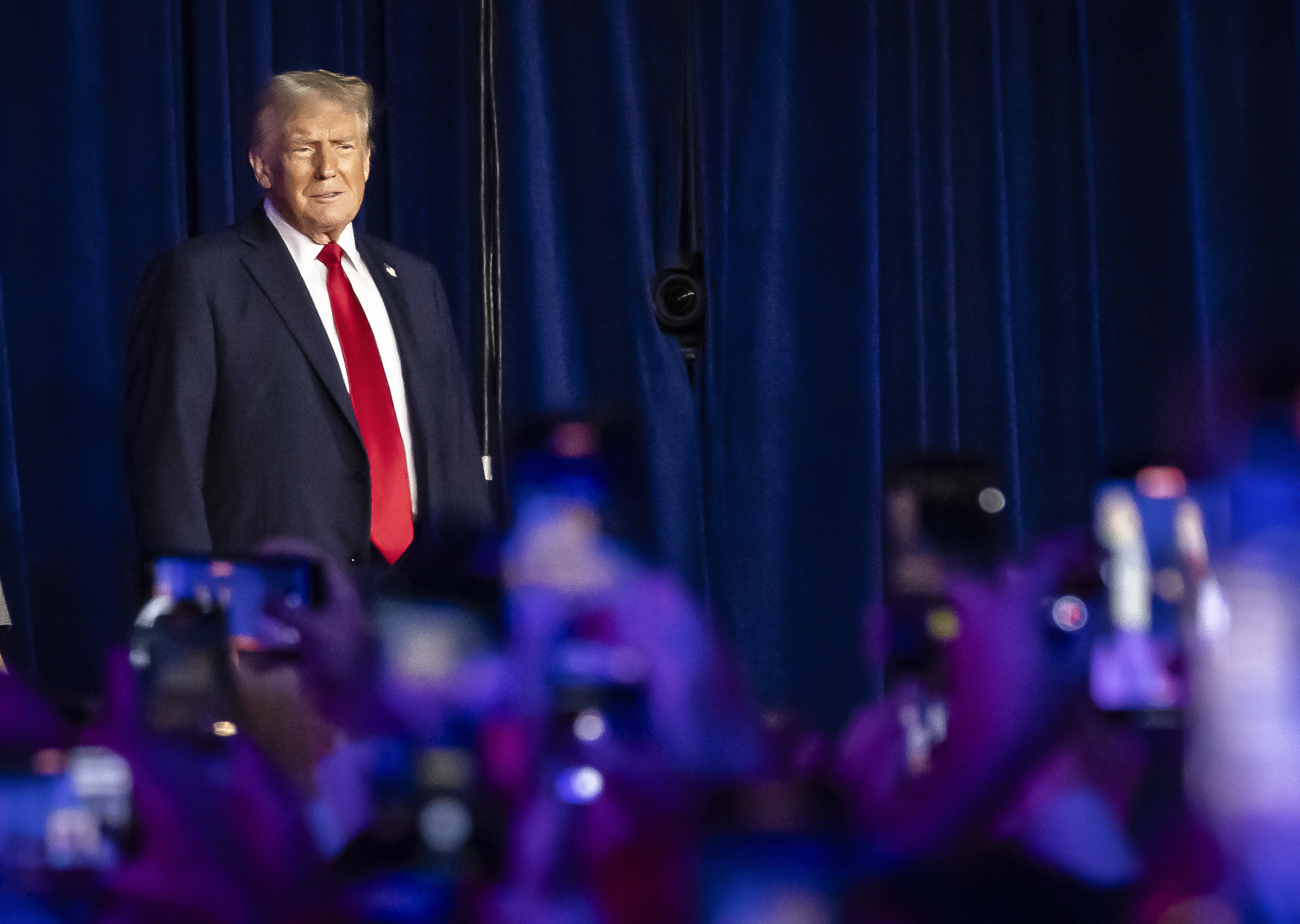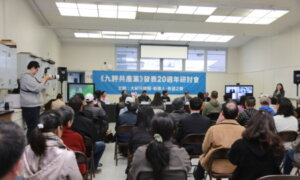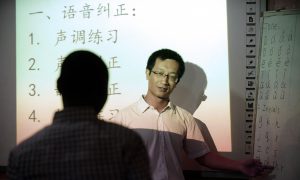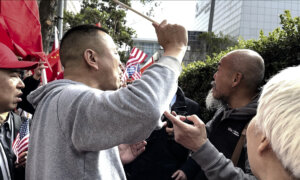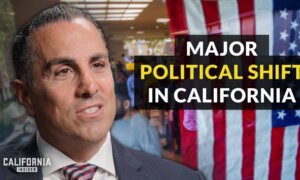Beijing’s subdued congratulations to U.S. President-elect Donald Trump was tinged with warnings, revealing Chinese regime leader Xi Jinping’s anxieties, a China affairs expert told The Epoch Times.
“Xi Jinping has congratulated U.S. President-elect Donald Trump. President Xi Jinping pointed out that history has shown us that cooperation between China and the United States will benefit both sides, and that fighting will hurt both,” Chinese foreign ministry spokeswoman Mao Ning told reporters in Beijing on Nov. 7.
Xi’s gesture of congratulating Trump is merely a diplomatic courtesy, and the former president’s return to the White House is the last thing Xi wants to see, said Chin Jin, China expert and the global chair of the Federation for a Democratic China.
“During Trump’s four years in office, the U.S.–China relation was very tense,” he said. “Trump’s goal is to balance the trade deficit with China, which will cause tremendous damage to the Chinese economy.”
The U.S. trade deficit with China, which has grown over the years, stood at $367.4 billion in 2022, according to the Office of the U.S. Trade Representative.
On the campaign trail, Trump proposed imposing up to 60 percent tariffs on Chinese goods to build on and reinforce compliance with a Phase One deal he secured toward the end of his first term that put U.S. demands on intellectual property, forced technology transfers, and market access on the table.
In Xi’s congratulations, he emphasized that both nations must balance their interests and stand “to gain from cooperation and lose from confrontation.”
Chin says this statement is false.
“If both countries can indeed cooperate, China could have won twice,” he said, adding that confrontation would not lead to mutual loss but rather the collapse of the CCP.
“Trump won’t fall for it, so Xi’s words won’t have any deterrent effect on the president-elect.”
Taiwan Conflict
Beijing also reaffirmed its firm stance on the Taiwan issue at the regular press conference on Nov. 7 when asked about Trump’s comments that his reelection would be a deterrence to a Chinese invasion of Taiwan.“The Taiwan issue is the most important and sensitive issue in China–U.S. relations. China firmly opposes any form of official exchange between the U.S. and Taiwan. This position is consistent and clear,” Mao said.
In a September Washington Post interview, Trump was asked whether he thought China would attack Taiwan if he were president. He replied, “Nope, not while I’m president,” but warned, “Eventually, they will.”
While Mao warned the United States that its stance on Taiwan could damage China–U.S. relations and stability in the region, Chin said that Trump’s reelection would make a war in the Taiwan Strait impossible.
“What Xi fears now are tariffs and a trade war, not the Taiwan Strait,” he said. “With Trump in office, Xi wouldn’t dare take military action against Taiwan.
“Trump doesn’t care about crossing the lines [the CCP] draws in the sand, as long as it aligns with national interests and makes America great again.”
He cited an example of Trump crossing one such line soon after he won the 2016 presidential election. Trump violated the CCP’s “one China principle” when he accepted a call from then-Taiwan President Tsai Ing-wen, who congratulated him on his win. This was the first time since 1979—when Washington cut formal ties with Taipei and adopted the “One China” policy—that a U.S. president or president-elect has spoken to a Taiwanese president.
The CCP’s “one China principle” stipulates that mainland China and Taiwan are inalienable parts of a single “China.”
Chin does not believe Xi would start a war even if Trump hadn’t won.
“Even without Trump, Xi would still face international isolation [if the CCP invaded Taiwan],” he said, citing the existence of AUKUS—the trilateral alliance of the United States, UK, and Australia—and other Indo-Pacific allies including Japan and the Philippines,” he said.
“How could China possibly go to war? If Xi gives the green light to attack, Taiwan becomes scorched earth, and the CCP would become smoke and ashes. ... I believe Xi can see this outcome; he’s just posturing.”
Chin, a longtime campaigner for a post-communist China, said that Trump’s return to the White House could lead to a new political direction globally and that Trump, Republicans, and exceptional leaders with “courage and vision” could weaken the CCP and bring about political change even in China.
“I believe that under Trump’s leadership, the world will see a new situation,” he said.
“America will become great again, the world will be at peace, and the threat of a world war will be significantly reduced.”
